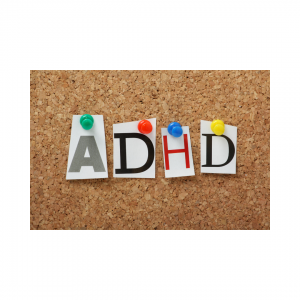Parenting Helps for ADHD Children

Children with ADHD
(Please note: as an affiliate with Amazon I earn from qualifying purchases). ADHD is a chronic problem that causes millions of children and adolescents and often lasts into adulthood. As a result, various chronic difficulties, such as trouble sustaining focus, hyperactivity, and impulsive behavior, are associated with Attention-Deficit/Hyperactivity Disorder (ADHD).
Furthermore, medicine wo; not actually complete the treatment or cure ADHD; it only but reduces the nature of the symptoms. In most cases, medication and behavioral approaches are both employed in treatment. Medical research tells us that early detection and treatment can make a significant difference in the outcome.
Low self-esteem, strained relationships, and even poor academic achievement are all symptoms of ADHD in children. As you become older, your symptoms may lessen. Many individuals, on the other hand, never fully recover from the symptoms of ADHD, but they may be able to devise effective strategies.
Let’s also look at the signs or symptoms of ADHD in children.
Symptoms of ADHD in Children
Two of the most prevalent symptoms of ADHD are inattention and hyperactivity-impulsivity. As a result, symptoms usually occur before the age of twelve, and in some children as young as three. The effects can result from moderate to severe, and then they can linger well into adulthood in some situations.
ADHD is more common in boys than in girls, and boy and girl behaviors can differ. For instance, boys may be more energetic, whereas girls may be more inattentive.
The ADHD type is inattentive the most of the time. The majority of symptoms are caused by a loss of focus.
However, there are three distinct types of ADHD in youngsters.
- Inattentiveness
- Overly Hyperactive/Impulsive
- Both Combined
Let’s look at them individually
Inattentiveness
Whenever a child has a habit of being distracted, he or she may:
Make careless errors in homework or neglect to pay attention to details.
- Have trouble concentrating on hobbies or games
- Act as if they aren’t paying attention, even when they are.
- Do you have trouble keeping track of your duties and activities?
- Assignments and other tasks that require intense mental effort are avoided or hated.
- Allowing oneself to be easily distracted is a bad idea.
- Neglect about some of your daily responsibilities, such as household chores, and so on.
Over Hyperactive/Impulsive
A child with a background of impulsive and hyperactive personality may:
- Slither in his seat, squirm with his hands or feet, or fidget with his feet.
- Do you find it difficult to stay sitting in class or in other situations?
- Don’t run about or climb when it’s not proper.
- He finds it difficult to play or conduct an activity quietly.
- Excessive talking
- Interrupt or eavesdrop on other people’s talks, games, or recreational activities.
Causes
Despite the uncertainty in which mechanism brings about ADHD, research efforts continue. The development of ADHD may be influenced by genetics, the surroundings, and anomalies in the central nervous system during important junctures in childhood.
3 Characteristics’ Parents needs to deal with when their child has ADHD
When a child has ADHD, there are various items and activities that parents must pay close attention to; we’ll go over a few of the most important ones for you to consider as a parent. Let us have a look at them.
- Constant Movement or Activity: As the child’s parent or legal guardian, you ought to be aware of his or her activities and ensure that he or she has ample opportunity to move around –even while learning![1]
- Self-Check for Parents: Parents should understand that children and Adolescents are sometimes socially and functionally disadvantaged. If your child misbehaves in public, you should gently and quickly remove them from the trigger and use their calm objects or situations that you have previously decided upon.
- Activities to Improve Executive Function: As a parent, you can assist your child in creating routines and structures in their daily habits in order to help them gain confidence as they complete their tasks. ADHD makes it difficult for children and adolescents to complete activities as they have problems with the conception of time, meeting deadlines and following through on endless tasks.
When should you consult a Parenting Coach?
If you feel your parenting could be more effective for your ADHD child’s symptoms, you could work with a parenting coach for help in creating effective strategies. Helping your child increase a sense of control over their emotions. critical to undergo a psychiatric examination again to check out other contributing factors of your child’s issues.
5 Things that a Parenting Coach can Help with
Parenting coaches first 1) help you troubleshoot the areas most in need of assistance, while 2) defining the first few baby steps you can take to be most efficient in reducing your ADHD child’s symptoms.
A parenting coach can also help you 3) simplify the environment, 4) organize your child’s thinking patterns, and 5) help you think of ways to provide powerfully energetic activities to lower your child’s anxiety.
Conclusion
As a parent, it is your responsibility to guide and assist your child with ADHD. Keep in mind that you ought not to be ashamed of them even if they overreact in public.
[1] Meiqi Zhang, Zhan Liu, Hongtao Ma, and Daniel M. Smith. 2020. “Chronic Physical Activity for Attention Deficit Hyperactivity Disorder and/or Autism Spectrum Disorder in Children: A Meta-Analysis of Randomized Controlled Trials”. Frontiers in Behavioral Neuroscience. 14.

Your article helped me a lot, is there any more related content? Thanks!